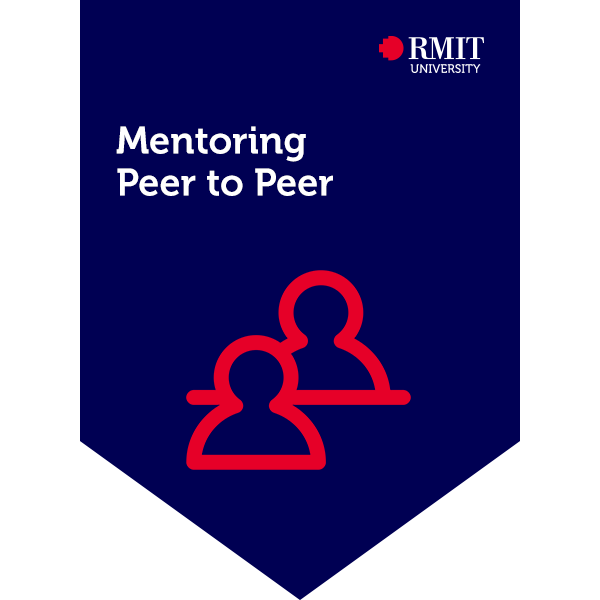Overview
*This credential is only available to current RMIT students
Experience and qualifications matter to employers, but they aren't the only attributes that employers look for. The so-called 'soft skills' - such as effective communication, peer mentoring and leadership - are especially attractive to companies looking for the next generation of leaders.
In this credential you'll reflect on the skills and knowledge that you have gained through your experience as a mentor: your interpersonal communication skills, such as active listening and questioning, providing effective feedback and facilitating meetings in a constructive, culturally sensitive and non-confrontational way.
After reflecting on your experience as a mentor you should expect to be able to demonstrate how the peer mentoring experience has facilitated your development of employability attributes, including: self awareness, respect, empathy, initiative, patience, facilitation, identifying and responding to mentee learner styles and scaffolding mentee learning.
This credential is currently available to students participating in the SLAMS program and who have completed one semester of mentoring.
Skills and learning outcomes
- Demonstrate effective peer-to-peer mentoring techniques such as active listening, asking probing questions, advising, and providing feedback
- Establish effective communication strategies across cultures
- Facilitate peer mentoring in a wide variety of learner styles and contexts including 1 on 1, small groups and large groups
- Collaborate with support staff and other mentors
- Explain how the peer mentoring experience has enabled the development of employability skills
Content
Module 1: About SLAMs and Mentoring
Module 2: Communication
Module 3: Intercultural awareness
Module 4: SLAMs Operations
How does it work ?
While undertaking a training program and taking part in at least 16 hours of peer mentoring, this earner showed an aptitude for effective communication, demonstrating strong listening skills and an affinity for interpreting non-verbal communication and providing constructive feedback. They also showed awareness and sensitivity to cultural differences, and successfully facilitated meetings of both small and large groups.
After completion of training and the required minimum hours of mentoring the earner engaged in a guided reflection process endorsed by peer reviewers.






